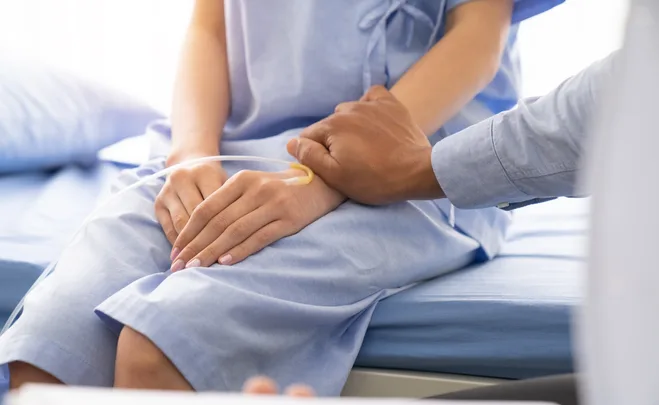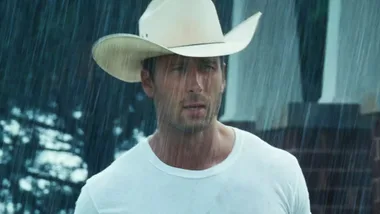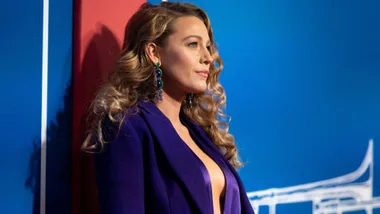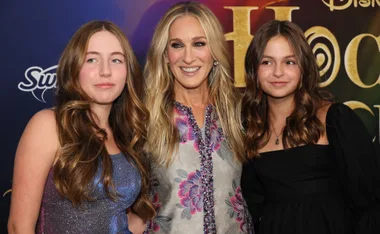Pamela Campusano was 38-years-old when she found out she had Triple Negative Breast Cancer—in Australia, 2,500 new cases of this illness are diagnosed each year.
“It’s the cancer they tell you not to google,” she shares with me one afternoon on Zoom. She’s based in sunny Cairns, where lockdowns are non-existent, and life is normal. She has a scarf wrapped neatly around her head. It’s the only sign to the outside world that something is different about her, otherwise you wouldn’t know.
Pamela is from Chile, having moved to Australia after backpacking here. Soon, she found love, laid down roots and created a family of her own. She’s a proud mother to a beautiful daughter named Matilda—she’s clearly her mother’s north star during this trying time.
“When I found the lump in June [of this year], it was the size of a ping pong ball and it literally appeared overnight,” Pamela shares with me.
“I dropped everything on the spot and because I live rurally, my GP didn’t have a free appointment. I waited outside his office all day until he could squeeze me in because it was urgent.
“My mum had breast cancer when she was 52, so I was conscious of checking regularly,” she says.
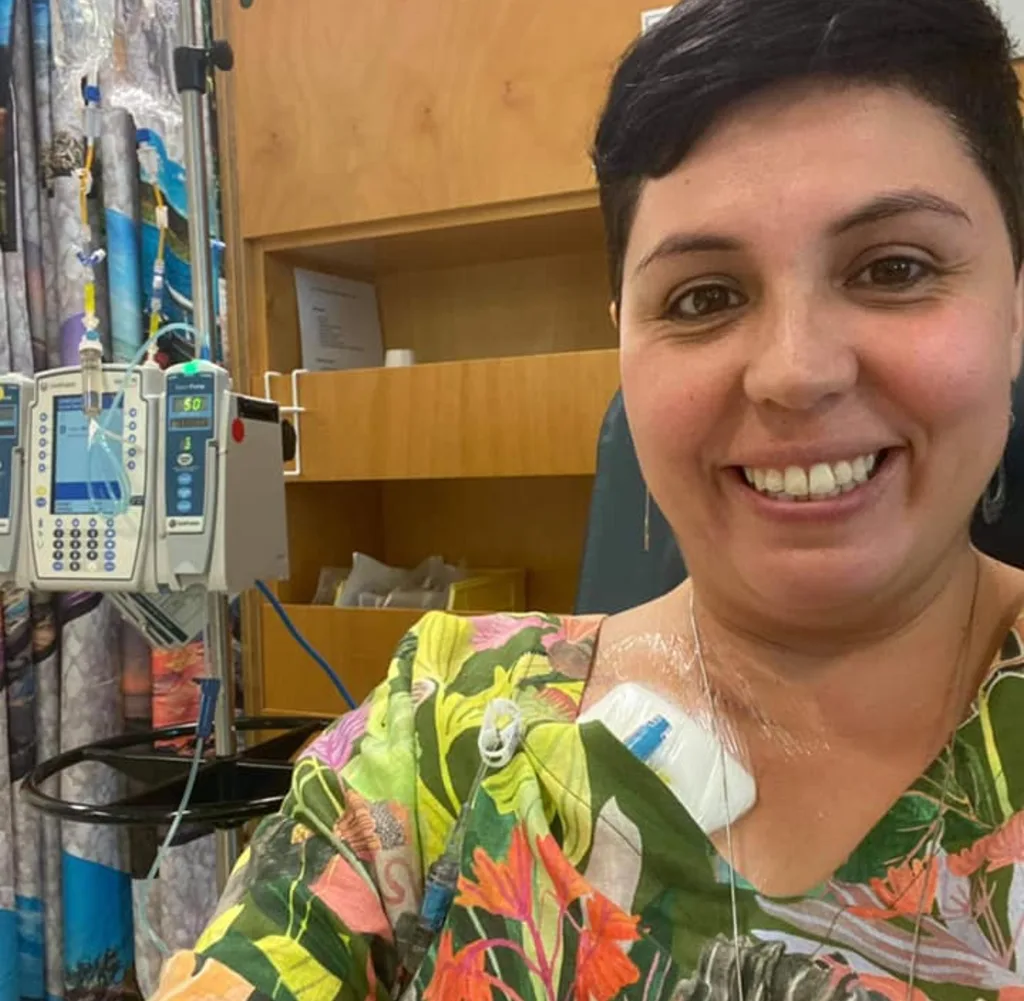
While approximately 75 per cent of new cases develop in women over 50, and the average age of diagnosis is actually 60, age isn’t always a factor.
“I had a gut feeling it was too big to be a cyst, so when I had the ultrasound and heard the gasp of the technician… I just knew,” she says.
Days later Pamela received confirmation from biopsy results that it was breast cancer.
“I didn’t know it was triple negative yet, not until I got a call from my breast cancer nurse. She was the first one to say what I had was classified as triple negative. I just remember saying, we’ll that’s a terrible name, and then she told me not to go online.”
Triple negative breast cancer is one of the lesser-known breast cancers. It accounts for 15 per cent of all breast cancer diagnoses and is classified as the most aggressive, thus having a poor survival rate. It’s sadly almost unheard of, hiding in the shadows of the overall breast cancer umbrella and is the very reason Pamela wishes to share her story for Breast Cancer Awareness month.
“My life changed overnight,” she exclaims.
As a cancer patient myself, I can but all too well recall the same moment it happened to me. What was once a life you could see clearly, is nothing but blurred lines bookended by appointments.
When the time came for Pamela to make a decision about her breasts, she recalls how scary it was listening to the surgeon discuss all the options. However, she knew in her heart immediately what she wanted to do.
“I was very stern with the breast surgeon,” she shares. “I said I know my rights and I’m going with a double mastectomy. I mean, I wasn’t taking any chances and it hadn’t even been two weeks since I was diagnosed…if I could do anything here to avoid it coming back, I was going to.”
Her breast surgeon agreed and with that plan set, her oncologist revealed to her that she was classified as stage 3, meaning it hadn’t spread anywhere else in body. Finally, a treatment plan was put in place. She would receive multiple rounds of chemotherapy, undergo a double mastectomy, radiation and potentially even more chemotherapy based on whether a complete response was received.
“Those two weeks between finding the lump and having a treatment plan, they were the most excruciating two weeks ever. As soon as we had a plan, my anxiety went down.
“I wasn’t scared, I just needed to start fighting this,” she says with grit.
Pamela recalls sharing with her oncologist that she had a very clear goal, and that goal was to be cured.
“I just said, I see myself walking in here, in however many months, cured.”
Thankfully, her oncologist shared the same goal. And so, Pamela began treatment.
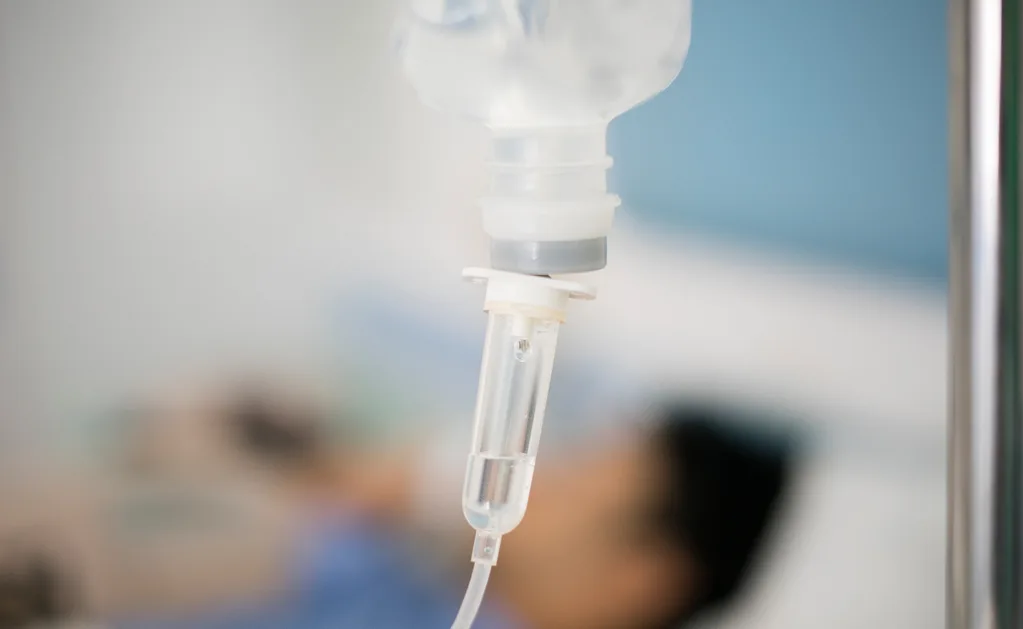
As a fellow cancer patient, our chat naturally leaps all over the place, but we land on the very touching topic that most cancer patients don’t think about until the initial wave has occurred.
I share with her that the first oncology appointment has a certain air about it. You’re nauseous because of what’s about to come but also because you’re about to hand over your life to someone else to take care of—to essentially keep you alive. You’re no longer the expert in your own life.
“Absolutely,” she agrees with me.
“In that moment, you don’t have control. Over anything. Everything happens to you. And it’s really confronting, especially for an independent woman.”
It’s now my turn to agree with her. There are many things the ordinary, healthy person doesn’t experience, but its times like those—haunting moments that will remain with you forever—where you feel utterly overwhelmed by what you’re going through and the decisions you must make.
On the topic of decisions, Pamela steers the conversation to fertility.
“I had to have a conversation about future children, because they told me chemotherapy could lead to early menopause. I remember asking the doctor in terms of time frame what that means, and she said it would delay chemo for three weeks.
“So much could happen in three weeks, and you never know, right? So of course, my husband and I had to have a talk, but we agreed that all that mattered right now, was to make sure that Matilda still has a mother.”
When it comes to her daughter, Pamela is very honest.
“I let my daughter see me because I want to raise a strong little girl. I’d prefer her not to see it, but it’s life and I can’t undo it. All I can do, is show her that this can happen.”
Despite the many ups and downs Pamela has undergone, she’s powering through round after round of chemotherapy. Soon, she will undergo surgery when chemotherapy is finished. All of it is physically and mentally taxing and requires all hands-on deck.
“I’ve been petitioning the government to let my mother come from Chile because we don’t have family here. My family is over there, my husband’s family is in Adelaide. With Covid, it’s been incredibly hard.”
Pamela’s situation is not uncommon given the boarder closures, but despite having all the paperwork, supporting letters and everything sorted to perfection, the Australian government denied her request for support, three times.
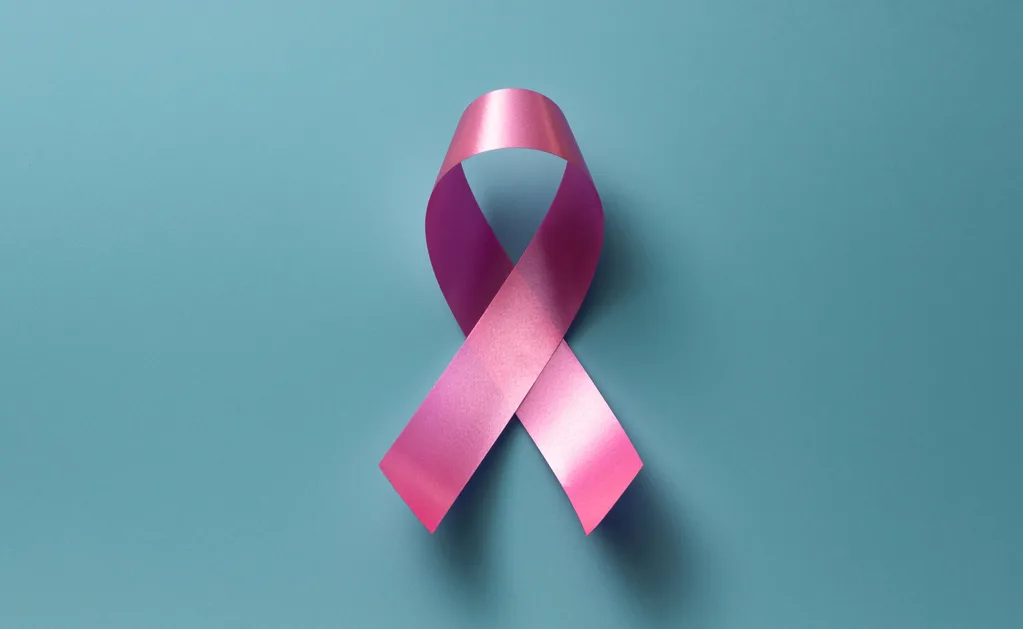
“It’s incredibly frustrating. Especially because my breast cancer nurse has told me others have been successful, and their prognoses aren’t as severe as mine.”
On the fourth try, her prayers were answered, and Pamela’s mother will fly into Brisbane in November.
“Sometimes, you just want your Mum,” she confesses.
To that, I’m sure a lot of people can relate.
Pamela has a long way to go in her cancer journey, but she’s optimistic and remains pragmatic about the future. She’s aware it can come back anywhere in the body, but she’s choosing not to focus on that right now, only having tunnel vision for her most important goal: to be cancer free.
“The hard days where I can’t pull myself are somewhat worth it now, because I already can’t feel the lump anymore, meaning chemo is doing what it’s meant to do.”
Regardless of how hopeless she may feel at times, Pamela’s determination to see the positives and do her best to educate others as well as be there for her family is truly inspiring.
“I want to raise awareness and make women pay attention to their bodies,” she says towards the end of our zoom. “I’m not doing anyone a favour by not sharing my story.”
October is Breast Cancer Awareness month, a time to spotlight the importance of research to achieve better and more effective treatment options. To donate to the National Breast Cancer Awareness Foundation, visit their website here.
